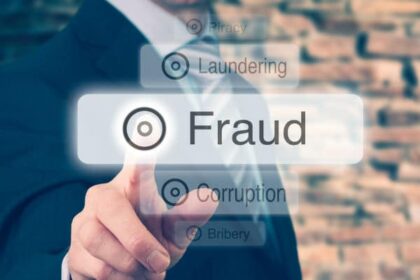American Express, a titan in the financial industry, recently found itself in hot water after the United States Department of Justice (DOJ) levied a hefty $108.7 million civil penalty against the company. This significant settlement stems from allegations of deceptive marketing practices, falsified information, and violations of the Financial Institutions Reform, Recovery and Enforcement Act of 1989 (FIRREA). This article will delve into the specifics of the case, examining the alleged wrongdoings of American Express, the implications of the settlement, and what it signifies for the broader landscape of financial institutions and small business owners.
A Pattern of Deception: Unpacking the Allegations Against American Express
The DOJ’s investigation uncovered a pattern of deceitful conduct spanning several years, impacting both credit card and wire transfer products offered by American Express. The allegations paint a picture of a company prioritizing profit over ethical business practices, ultimately harming its small business customers. Let’s break down the key areas of concern:
1. Deceptive Marketing of Credit Cards (2014-2017):
This period saw American Express allegedly engaging in aggressive and misleading sales tactics through an affiliated entity. Small businesses were targeted with sales calls that often contained misrepresentations about the credit card products. The DOJ’s findings highlighted several problematic practices:
- Misrepresentation of Rewards and Fees: Sales representatives allegedly downplayed fees and exaggerated the benefits of reward programs, creating a false impression of the card’s value.
- Unauthorized Credit Checks: The investigation revealed that credit checks were potentially conducted without explicit customer consent, a clear violation of established protocols.
- Falsification of Financial Information: Perhaps most concerning was the allegation that American Express employees falsified financial information on applications, inflating business income to secure approvals. This practice not only put customers at risk but also undermined the integrity of the credit approval process.
2. The “Dummy” EIN Fiasco (2015-Mid 2016):
Employer Identification Numbers (EINs) are crucial for businesses. They are legally required for entities like corporations and partnerships when applying for credit cards. The DOJ found that American Express engaged in a practice of using “dummy” EINs, such as “123456788,” when opening small business credit card accounts. This occurred during the transition from a discontinued co-branded card to a new product.
- Violation of Regulatory Requirements: The use of placeholder EINs is a blatant disregard for legal requirements and raises serious questions about internal controls within American Express.
- Exacerbation of Existing Issues: American Express’s prior practice of assuming sole proprietorship when EINs were left blank on co-branded card applications amplified the problem. This meant that many customers who should have provided EINs were incorrectly classified, and the issue carried over when they were sold replacement cards.
- Delayed Remediation: The most damning aspect is that these dummy EINs remained on accounts for up to two years before American Express addressed the issue. This suggests a systemic failure to rectify a known problem.
3. Misleading Wire Transfer Products (2018-2021):
The deception didn’t stop with credit cards. American Express also allegedly marketed its Payroll Rewards and Premium Wire transfer products with false claims regarding their tax benefits.
- Inflated Fees and Misleading Tax Claims: American Express charged above-market fees for these wire transfer services, significantly higher than those of competitors. Customers were then awarded credit card reward points. Sales representatives allegedly told customers that these fees were tax-deductible as business expenses, while the reward points were not taxable, creating a perception of a “tax-free benefit.”
- DOJ’s Contention: The DOJ argued that these inflated fees were not deductible as ordinary or necessary business expenses because they were incurred solely for personal gain (the reward points). This essentially rendered the promised tax advantage illusory.
The Fallout: $108.7 Million Penalty and a Non-Prosecution Agreement
The consequences for American Express have been substantial. The $108.7 million civil penalty is a significant financial blow, demonstrating the seriousness of the alleged violations. Importantly, the settlement includes a $30.35 million credit conditional upon the payment of fines from a separate criminal resolution.
Non-Prosecution Agreement: In addition to the civil settlement, American Express entered into a Non-Prosecution Agreement with the U.S. Attorney’s Office for the Eastern District of New York. This agreement focuses specifically on the Payroll Rewards and Premium Wire programs and involves a separate criminal fine and forfeiture. While details of this agreement are less public, it underscores the gravity of the situation.
Statements from Authorities:
The DOJ, along with the Federal Deposit Insurance Corporation Office of Inspector General (FDIC-OIG) and the Office of Inspector General for the Board of Governors of the Federal Reserve System and Consumer Financial Protection Bureau, issued strong statements condemning American Express’s actions. These statements emphasize the commitment to holding financial institutions accountable for fraudulent practices that harm customers and erode public trust.
The Bigger Picture: Implications for the Financial Industry and Small Businesses
This case has far-reaching implications that extend beyond American Express. It serves as a cautionary tale for financial institutions and a reminder of the importance of ethical business practices, transparency, and rigorous compliance with regulations.
1. Heightened Scrutiny:
This settlement signals a renewed focus on scrutinizing the marketing and sales practices of financial institutions. Regulators are likely to be more vigilant in identifying and addressing deceptive tactics.
2. Importance of Internal Controls:
The “dummy” EIN incident highlights the crucial role of robust internal controls. Companies must have systems in place to ensure compliance with regulations and to prevent errors and misconduct.
3. Transparency and Clear Communication:
Financial institutions must prioritize transparent and accurate communication with customers. Misleading marketing, hidden fees, and complicated product structures will face increased scrutiny.
4. Empowerment of Small Businesses:
This case serves as a reminder for small business owners to be vigilant and informed consumers of financial products. They should carefully review terms and conditions, ask questions, and not hesitate to report potentially deceptive practices.
5. Potential for Reform:
This case could prompt further reforms within the financial industry, particularly concerning the marketing of financial products to small businesses.
What Should Small Businesses Do?
- Review Your Accounts: Carefully examine your American Express credit card and wire transfer statements for any discrepancies or questionable fees.
- Verify Your EIN: Ensure your correct EIN is on file with your financial institution.
- Understand Product Terms: Take the time to thoroughly understand the terms and conditions of any financial products you use.
- Seek Professional Advice: If you suspect you have been a victim of deceptive practices, consult with a legal or financial professional.
- Report Suspicious Activity: Report any suspected fraud or misconduct to the appropriate authorities, such as the Consumer Financial Protection Bureau (CFPB).
Conclusion: A Call for Ethical Conduct in the Financial Sector
The American Express settlement is a stark reminder that even the most established financial institutions are not above the law. The case underscores the importance of ethical conduct, transparency, and accountability within the financial industry. It is a victory for small business owners who were targeted by these deceptive practices and a call for greater vigilance from both regulators and consumers. This settlement should serve as a catalyst for positive change, fostering a more trustworthy and equitable financial landscape for all. The message is clear: prioritizing profit over ethical practices will ultimately have severe consequences. The integrity of our financial system depends on it. This is not just a legal matter; it’s a matter of trust and the very foundation of the relationship between financial institutions and the businesses they serve. The fallout from this case will undoubtedly continue to unfold, shaping the future of financial regulation and the expectations placed upon institutions that hold such a pivotal role in our economy.














